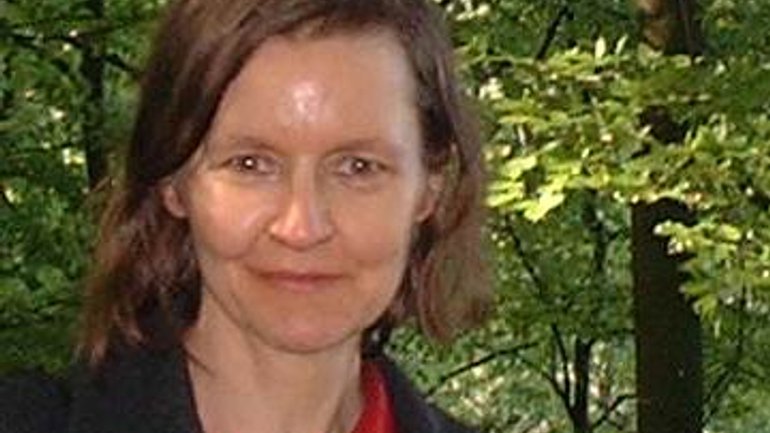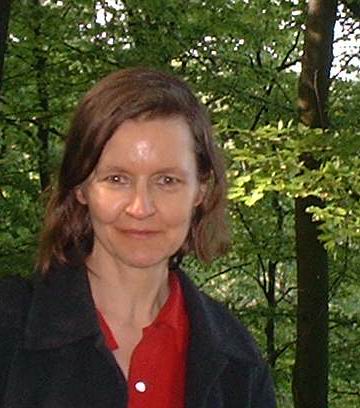Quasi-religious Favouritism

 The consequences of any form of favouritism tend to be negative. The dangers, however, when one religious group is favoured above others by those in power, are incalculable.
The consequences of any form of favouritism tend to be negative. The dangers, however, when one religious group is favoured above others by those in power, are incalculable.
The last US State Department Report on Religious Freedom until the end of June 2010 was fairly upbeat, referring to constitutional and legislative guarantees of freedom of conscience.
The safeguards on paper remain unchanged yet very pronounced differences in government practice make it most unlikely that the next report will be so positive. Despite a population including large numbers of Christians of different denominations, Jews and Muslims, as well, of course, as non-believers, the Orthodox Church under the Moscow Patriarchate [UOP MC] is being treated with favouritism and as if it were the official religion by the political force in power. This apparent boom, like Midas’ gold, will prove a bane to the Church itself. It is also a grave threat to inter-confessional relations and the foundations of a democratic state.
The first overt indication that the new regime under President Yanukovych was giving one Church very special treatment came in July during Patriarch Kyril’s visit to Ukraine. The State pomp of the occasion was quite unprecedented, as was the coverage given all events by both the State-owned First National TV, and Inter, owned by the Head of the Security Service. At the end of July, these and most other TV channels were entirely silent about complaints being received from around the country, as well as from the Kyiv Patriarchate, that the traffic police were preventing other believers reaching Kyiv for a festival of significance to all Orthodox Christians.
While local officials have often taken sides in conflicts between different Orthodox Churches, or between Orthodox and Greek-Catholic believers, this remained at regional level.
Clear signs from the country’s leaders as to which Church they favour have effectively shattered an already fragile balance.
In a recent interview, the Head of the Ukrainian Greek Catholic Church, Cardinal Lyubomyr was loath to dramatize the situation, but did say that “our present government under the leadership of President Yanukovych has begun to treat the Orthodox Church under the Moscow Patriarchate almost like a State Church, giving it various privileges”.
Cardinal Lyubomyr mentions that Greek Catholic communities are much more likely now to face difficulties in having land allocated for building places of worship, receiving building permits and other documents. “We always encountered local authorities that created certain obstacles but now this is becoming, I would say, a general thing.”
Such discrimination, undoubtedly in breach of the Constitution and the basic principles of equality and State neutrality in a democratic country, is usually difficult to prove.
Preferential treatment, on the other hand, is becoming all too tangible. And if this didn’t make it hard to ignore, the fact that taxpayers’ money is being used must.
It was reported on 6 December that the Kyiv City Council has allocated 11 million UAH for the construction of the Cathedral of the Holy Resurrection, under the UOC MP. One Deputy, Natalya Novak, who obviously opposed the decision, believes that Oles Dovhy, Secretary of the Council, “was approached by 'high-ranking' persons as the State is seriously involved in the supervision of the project”.
Although Ms Novak’s criticism of such spending when the city is seriously under-funded and, for example, orphans’ education is at risk, seems fully justified, this should not be viewed as the age-old dilemma between material and spiritual needs. The 11 million UAH is to be allocated not only to build a place of worship, but also “the metropolitan's residence, numerous offices, a school, an educational center, a hotel for pilgrims, a TV studio, a conference hall designed for one thousand people, a sports complex, and underground parking for 126 cars”.
Who should take pride in the fact that it will be the tallest cathedral in Europe is unclear, but it seems unlikely that Kyiv’s orphans, or in fact, a large number of its residents will feel any benefit from this edifice.
No less disturbing are the reports that the President has signed a decree providing funding for the construction of a UOC MP Church on the site of the ruins of the Desiatynna (Tithe) Church. The decree does not seem to be available on the President’s site however RISU [Religious Information Service of Ukraine] was informed by the Deputy Minister of Culture that the work would begin at the end of next year. This land is part of Ukraine’s cultural and religious heritage, and it would clearly be unfitting for a decision to be made to hand it over to one Church, not to mention without public consultation. Despite widespread coverage in the media, there has been no denial of the reports.
Patriarch Kyril did little to remove suspicion and distrust among many Ukrainians during his visit in July when his addresses on a number of occasions had a fairly pronounced political subtext. While distrust may be partly explained by long-standing conflict between believers of the different Churches, his treatment throughout as a State dignitary gave a very clear message to Ukrainians.
Believers of other faiths and their clergy were shown their place. Not that guaranteed by the Constitution and laws of the country, but that arbitrarily imposed by those in power. This message is being conveyed throughout the country. On 8 December yet another report was received of protests against alleged attempts by the Church of the Moscow Patriarchate to forcibly seize a church in the village of Kamyanka in the Donetsk region. An appeal has been sent to the President by the Bishop of the Donetsk and Mariupol Ukrainian Orthodox Church of the Kyiv Patriarchate, Serhiy.
The President is Guarantor of the Constitution which unequivocally states that Ukraine has no official ideology or religion and that all citizens are equal before the law. Neither he, nor any government, has a mandate to bestow preferences on any Church.
State neutrality is vital for any democracy but in a country as diverse as Ukraine, any other position is fraught with the gravest risk to unity and good inter-ethnic and inter-confessional relations.
Favoritism is also quite simply morally unacceptable. Any Church or religion which accepts material and other benefits from the State, becoming thus complicit in the violation of others’ constitutional rights, would be well advised to remember Jesus’ temptation in the wilderness.
His is an infinitely better example to follow.
Halya Coynash









